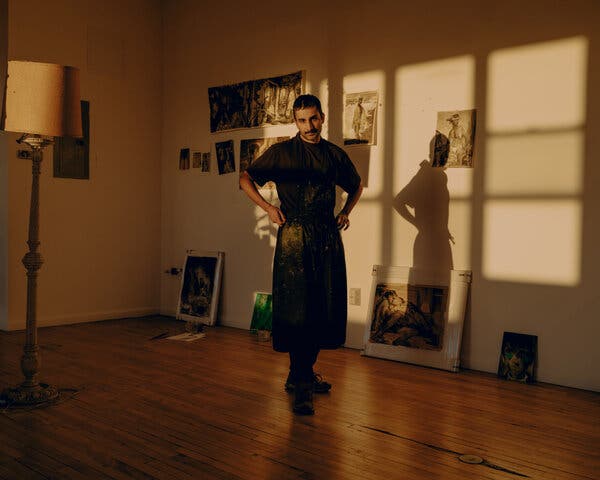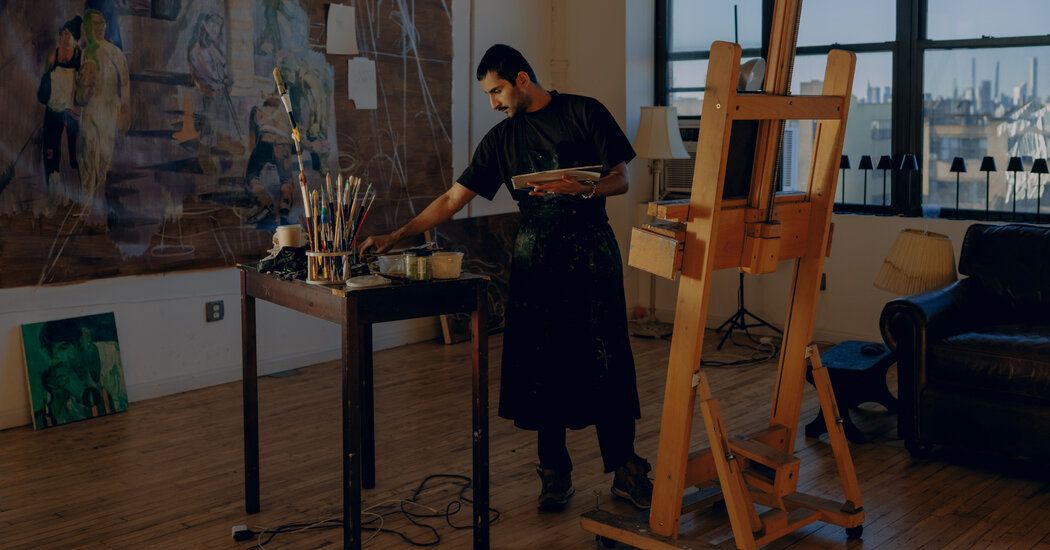Salman Toor needed a better perspective.
Backing slowly away from his easel, the 42-year-old artist closed one eye and raised a thumb. He arched his back to gain a few more centimeters of distance and then snapped upright. Exasperation led to acceptance. He buried any doubts and raised a paintbrush, once again, to the emerald-green portrait of his mystery man in heart-shaped sunglasses.
There is only one rule in the airy Brooklyn loft where Toor paints: Everything must come from memory.
Fleeting impressions of a friend’s face, the arch of a lover’s eyebrows, and a smirk maybe sourced from a Velázquez drawing merge into the composite creatures that occupy his paintings.
But there are no photographs, wooden models or reclining muses allowed in the studio, which is mostly empty except for a couch, some plants and a table used to hold brushes, pigments and oils.
On a morning in March, the walls were covered with dozens of new drawings, paintings and etchings that Toor has created over the last few years in anticipation of his largest exhibition to date, “Wish Maker,” which opens May 2 across Luhring Augustine’s two galleries in Manhattan. The show aims to reintroduce the artist — who was born in Lahore, Pakistan — as one of the most fascinating painters of his generation, capable of remixing old European techniques into contemporary scenes of queer desire and the immigrant experience.
This was Toor’s first chance at seeing everything in one room to decide which pictures he is comfortable exhibiting at a time when his work has become more politically conflicted and emotionally raw.
“There is a lingering question,” the artist said. “What am I doing here in America?”

Toor is one of the most fascinating painters of his generation, capable of remixing old European techniques into contemporary scenes of queer desire and the immigrant experience.
Receiving his United States citizenship in 2019 and committing to life in New York felt like he was leaving his family behind to some degree. His parents remained supportive but distant; they have never seen one of his major shows in person because, he suggested, of the frank depictions of queer sexuality that run counter to their conservative community in Pakistan.
